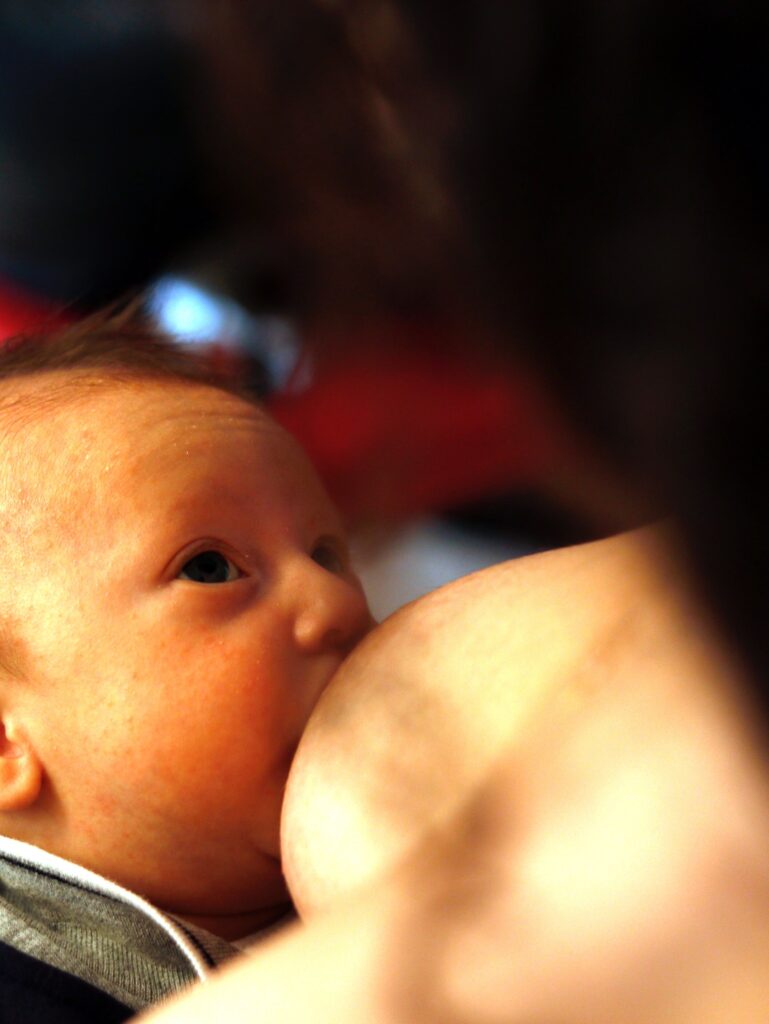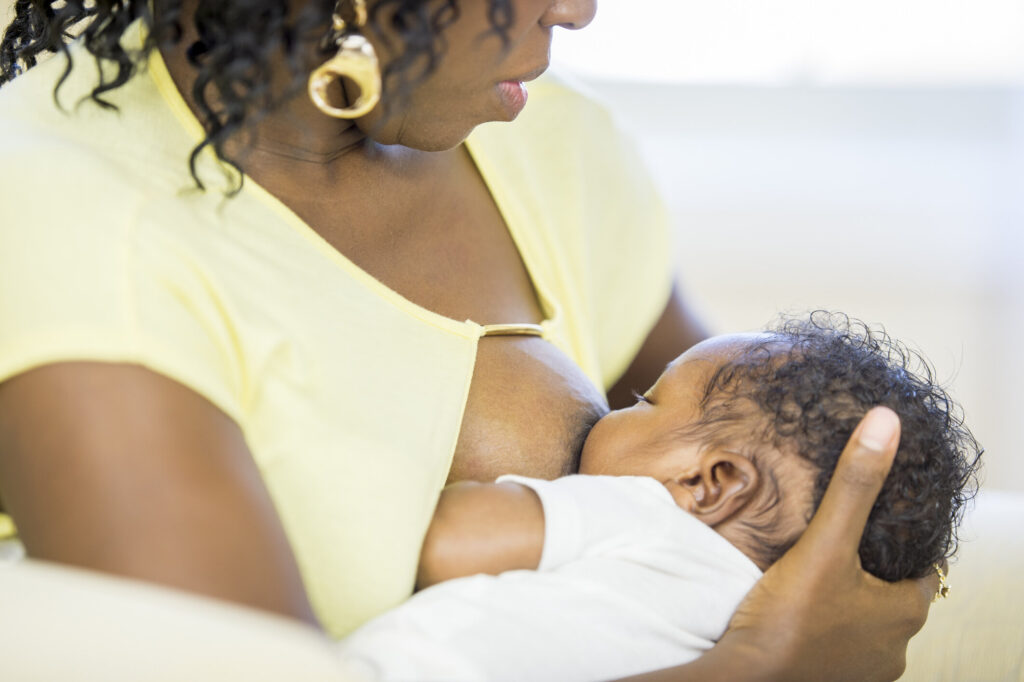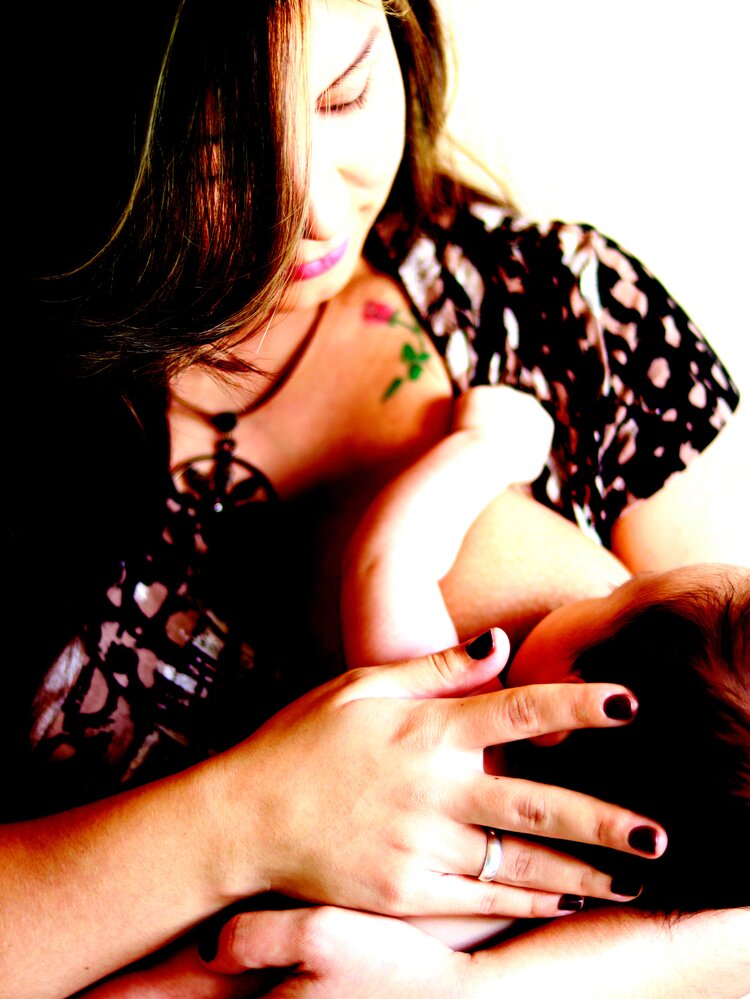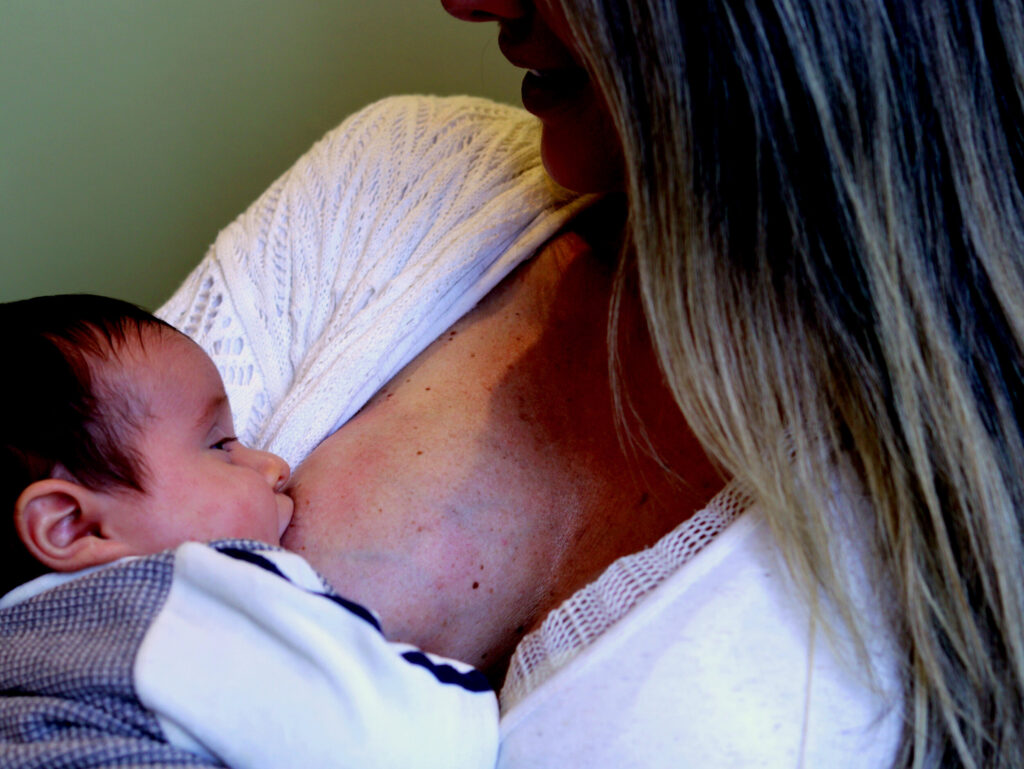
I’m Sick! Can I Still Breastfeed My Baby?
When you are sick with a newborn, everything – including infant feeding – is harder. Getting sick is the worst! Sometimes being sick may be caused by the challenges of all the new motherhood that weaken your immune system. Many parents wonder if it is okay to breastfeed their baby while they are sick. There are very few illnesses that can be passed to the baby through their mother’s milk. With that said, it is important to know when it is okay to breastfeed and when it is not. Here are some commonly reported guidelines:
Yes – breastfeeding is important!
- When you have a cold, the flu and most other infections: breastfeeding while you are sick is one of the best things you can do! Your body’s immune system makes antibodies to fight infection. Those antibodies are given to your baby through the milk to help him or her stay well. Make sure to wash your hands often with infant care, including before feeding your baby.
- Mastitis is an infection in your breast. It can be very uncomfortable, especially during breastfeeding. As painful as it may be, breastfeeding can help you get better.
Ask your health care provider for advice:
- Your health care provider may advise you not to breastfeed or delay breastfeeding due to certain infectious health conditions (e.g. Hepatitis B, Hepatitis C, Tuberculosis, Herpes, HIV-infection, etc.). Your healthcare provider can give you information about how to breastfeed with these conditions to make it safer for your baby or help you with other feeding choices for your baby.
- Hepatitis B and Hepatitis C can spread via blood so check your nipples for bleeding or cracking.
- You can breastfeed with tuberculosis if it is being treated.
- Herpes is spread through contact with the blisters. You can breastfeed if there are no sores on the breasts and other sores are covered up.
- If you have HIV, generally it is recommended to not breastfeed as there is a small chance of infection being able to pass through human milk, even while taking treatment.
- Your baby may have a health condition (e.g. galactosemia) that may make it difficult to use human milk. Such conditions are usually identified during newborn screenings and if found, your health care provider will help you get a special infant feeding formula for your baby.
- Most common medications are safe for mothers to take while breastfeeding. It is possible for medications can transfer through breast milk if a drug is present in your blood, but usually at low levels and without real risk to most infants. Click here for information about many different medicines.
- If you have COVID-19, or suspect that you may have it, you may be concerned about breastfeeding your baby. Breastfeeding remains the best source of nutrition for most babies, but you will want to take all possible precautions to avoid spreading the virus to your baby. This includes washing hands before touching the infant and wearing a face mask, if possible, while breastfeeding. If you are pumping milk, be sure to wash your hands before touching any pump or bottle parts and carefully clean the pump parts after each use. Consider having someone who is not sick feed the pumped milk to the baby if you can. For more information about breastfeeding and coronavirus, check here.
Remember your health is as important as your baby’s health. So if you’re in need of medication that is important for your health, be sure to work with your healthcare team to find ways to get the medical care you need while also reaching your baby feeding goals. If you have any questions about breastfeeding, ask your healthcare provider team. They are there to support you and your baby.










